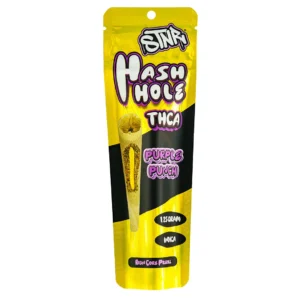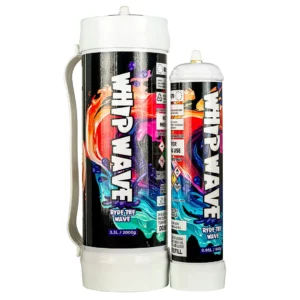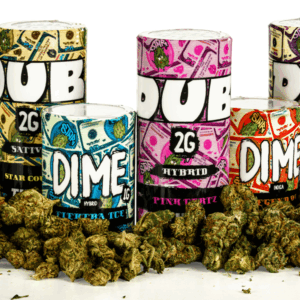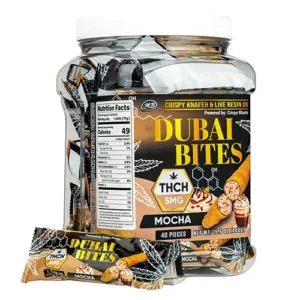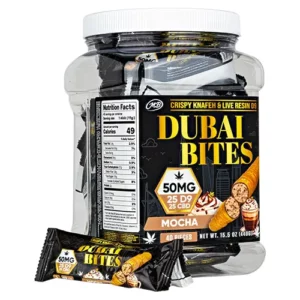In recent years, hemp-derived THC products have taken the wellness and recreational markets by storm. From infused gummies to sparkling beverages, these products are gaining ground—especially among consumers who are re-evaluating their alcohol consumption. While wine has enjoyed centuries of cultural significance and indulgence, hemp-derived THC offers a modern alternative that is not only versatile but also aligned with changing lifestyle preferences.
Below, we explore five key reasons why hemp-derived THC is emerging as a preferred choice over wine for many consumers today.
1. Health and Wellness Benefits
Lower Caloric Impact
One of the most talked-about advantages of hemp-derived THC products—especially edibles and beverages—is their relatively low caloric content compared to wine. A standard 5 oz glass of red wine contains about 125 calories. For those who enjoy a couple of glasses, the calories can quickly add up. On the other hand, many THC beverages contain fewer than 50 calories per serving, making them a lighter option for calorie-conscious consumers.
No Sugar Spikes or Hangovers
Wine, particularly sweet varieties, can be high in sugar, leading to energy crashes and unpleasant hangovers. Hemp-derived THC doesn’t come with this baggage. Properly dosed THC products offer a more controlled, predictable experience with minimal next-day side effects—no grogginess, nausea, or dehydration that often accompanies alcohol.
Anti-Inflammatory and Anxiety-Reducing Properties
Cannabinoids like THC and CBD are known for their potential therapeutic benefits. Many users report reduced anxiety, improved sleep, and relief from chronic pain and inflammation. Wine, although it contains antioxidants like resveratrol, doesn’t offer the same range of scientifically supported wellness benefits. For individuals looking to enhance both mental and physical well-being, hemp-derived THC is often the more holistic choice.

2. Customizable Experience
Precise Dosing
One of the main limitations of wine is the variability in alcohol content and its effects. A single glass might leave one person unaffected while making another feel light-headed. In contrast, hemp-derived THC products often come with clearly labeled dosing—5 mg, 10 mg, 25 mg, and so on—allowing users to fine-tune their experience with precision.
Variety of Product Forms
Wine is essentially one product with variations in type and origin—red, white, rosé, sparkling. Hemp-derived THC, however, spans a much broader spectrum: beverages, gummies, chocolates, capsules, tinctures, vapes, and more. This diversity allows consumers to find a format that best fits their lifestyle and preferences.
Control Over Onset and Duration
Different THC consumption methods provide varying onset times and durations. A beverage might take effect in 10–30 minutes and last for a few hours, whereas an edible might take longer to kick in but provide a more extended experience. This versatility gives users control over when and how they want to feel the effects—something that wine cannot offer to the same degree.
3. Fewer Social and Legal Stigmas
Changing Legal Landscape
In the United States, hemp-derived THC is federally legal under the 2018 Farm Bill, provided it contains no more than 0.3% delta-9 THC by dry weight. This legal status has allowed it to flourish even in states where cannabis is not yet fully legal. Wine, while widely legal, still has strict regulations around age, consumption in public, and driving under the influence.
Growing Social Acceptance
Cannabis use, including hemp-derived THC, is quickly becoming normalized, especially among millennials and Gen Z. In contrast, alcohol—once seen as a social staple—is being increasingly scrutinized for its health risks and addictive potential. THC-infused products are often viewed as modern, wellness-oriented, and even classy—especially with the rise of sleek, premium branding in the cannabis space.
Less Social Pressure
For those who are sober-curious or seeking alternatives to alcohol, THC products provide a socially acceptable option that doesn’t carry the baggage of drinking culture. There’s less pressure to “keep up” with others drinking alcohol, and more freedom to choose how you want to feel and engage.
4. Creative and Cognitive Enhancement
Enhanced Focus and Creativity
Moderate doses of THC have been shown to enhance creativity, increase focus, and open up new perspectives—qualities that are appreciated by artists, writers, and entrepreneurs alike. While wine might loosen inhibitions, it often comes at the cost of clarity and coordination. Many users report that small doses of THC allow them to enter a flow state, work more productively, or engage more deeply in conversations.
Mindful Recreation
Unlike alcohol, which can quickly impair judgment and motor skills, THC (especially when micro-dosed) allows for a more mindful recreational experience. Users often report a heightened sense of appreciation for music, food, art, and nature. It’s less about escape and more about enhancement—a significant shift from traditional substance use paradigms.
5. Sustainability and Ethical Considerations
Eco-Friendly Farming
Hemp is one of the most sustainable crops in the world. It grows quickly, requires minimal water, and naturally regenerates soil. In contrast, the wine industry can have a significant environmental impact through water use, pesticide application, and carbon emissions related to production and distribution.
Less Packaging Waste
Many hemp-derived THC products are sold in recyclable, minimal packaging. On the other hand, wine often comes in heavy glass bottles, contributing to greater carbon emissions during shipping and more waste overall.
Ethical Labor Practices
The hemp industry—being relatively new—has the opportunity to adopt ethical labor practices from the start. While not universal, many hemp brands are committed to transparency, fair labor conditions, and organic cultivation. The wine industry, particularly in regions with intensive agriculture, has faced repeated scrutiny over labor conditions and worker safety.
Conclusion: The Future Is Elevated
While wine will always have its place in human history and celebration, the rise of hemp-derived THC represents a shift in how we think about relaxation, recreation, and well-being. With its customizable effects, health-conscious profile, and modern branding, THC-infused products offer a compelling alternative for today’s thoughtful consumer.
Whether you’re winding down after a long day, looking for a mindful social enhancer, or simply exploring better-for-you options, hemp-derived THC may just outshine wine as the indulgence of the future.
So next time you’re reaching for a glass of red, consider trading it in for a THC-infused beverage. Your body, mind, and even the planet might thank you.

